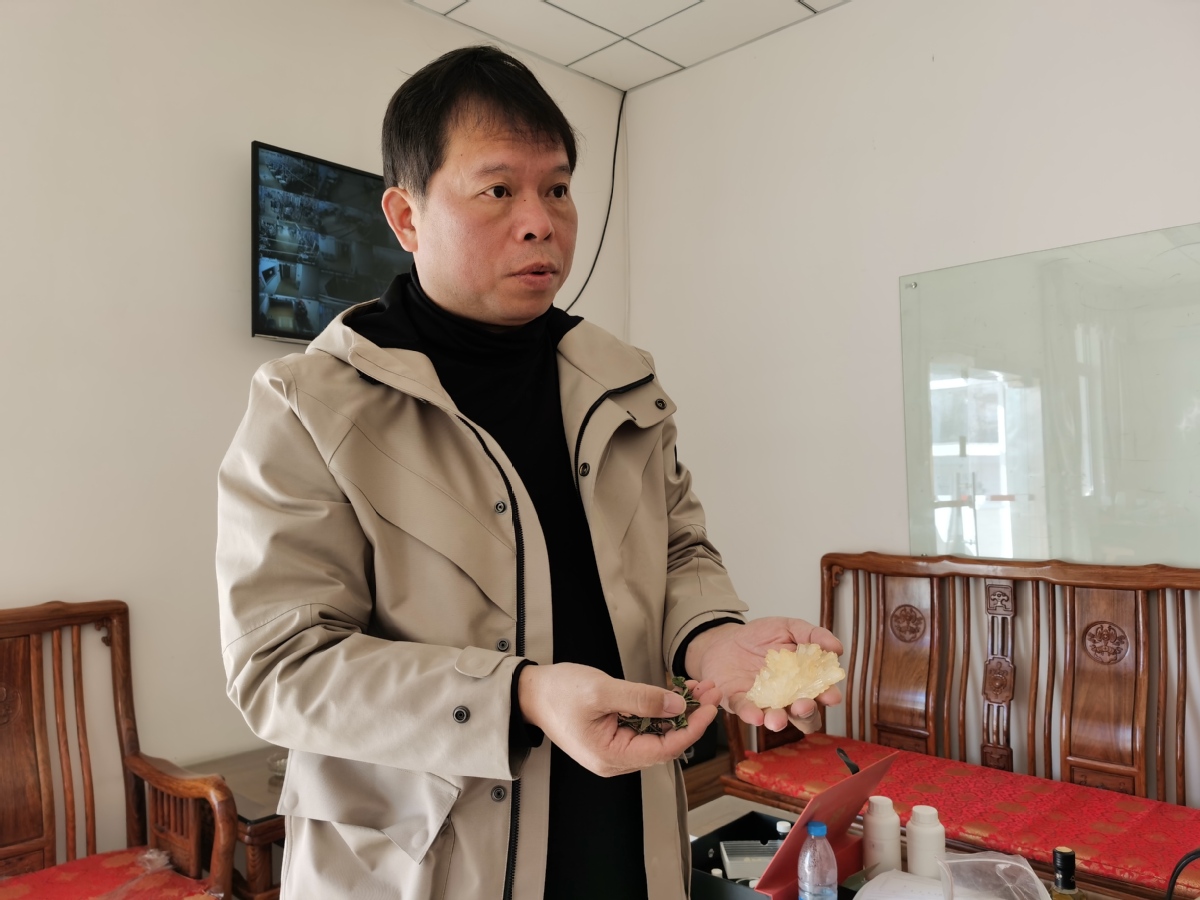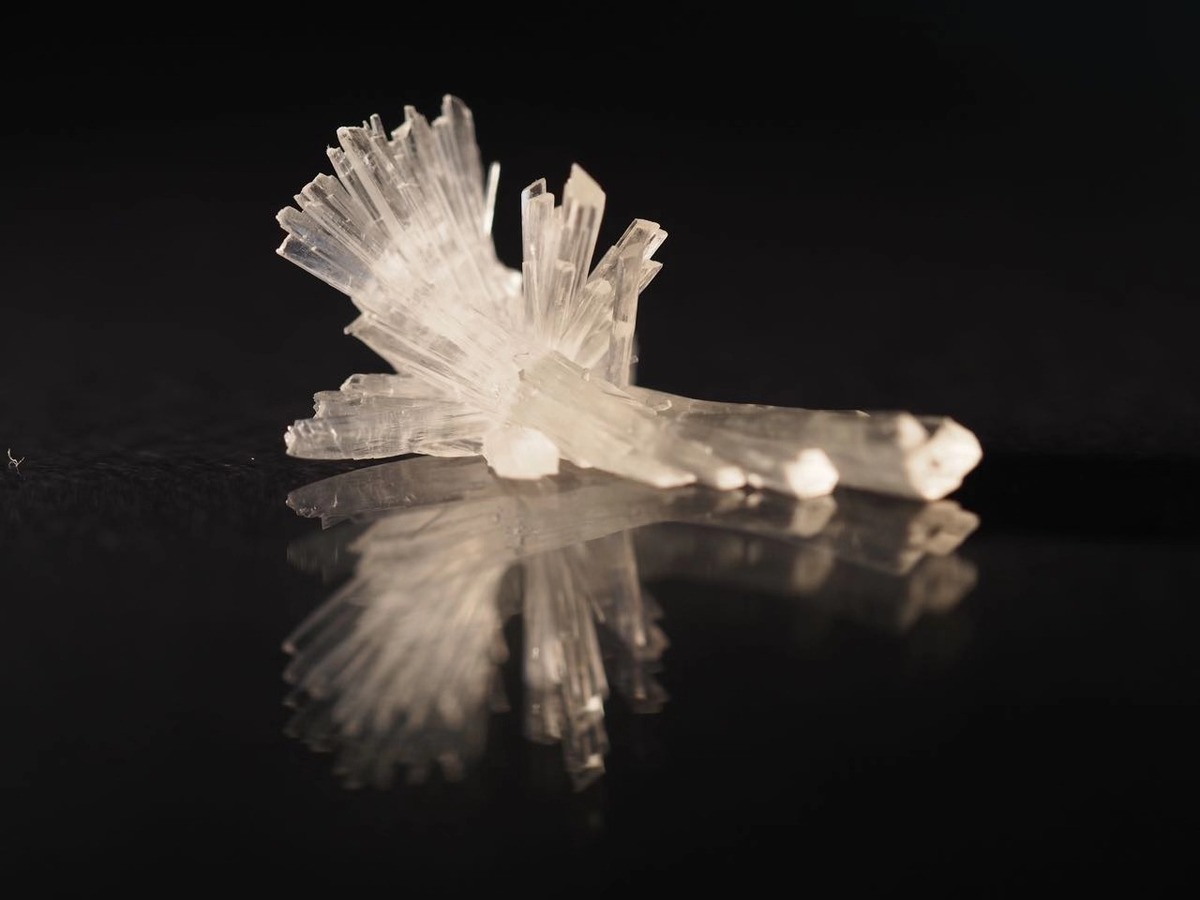
From the People's Daily App.
This is Story in the Story.
Yunnan introduced the country's first regulation on the commercial planting and processing of hemp, the industrial strain of marijuana, in 2010 and since then, hemp has been grown in the province.
Yang Ming, a hemp expert at the Yunnan Academy of Agricultural Sciences, said farmers mainly grow the plant for its seeds, fibers and cannabidiol, more commonly known as CBD, a nonintoxicating extract of the cannabis sativa plant.
"So far, scientists have identified more than 500 extracts in cannabis plants. Nearly 100 of the extracts are found in the flowers and leaves. The various cannabis plants have different amounts of these extractives, and the one called 'industrial hemp' is a legal crop in many countries," he said.
The concentration of tetrahydrocannabinol, or THC, the mind-altering ingredient in marijuana, is no more than 0.3 percent, an extremely low level.
Today’s Story in the Story looks at how it’s thought CBD could be used to treat things like anxiety and insomnia, and as an analgesic.

Pan Zongbing, CEO of Hankang (Yunnan) Biotechnology, displays CBD in Eshan, Yunnan province, in January. (Photo: CHINA DAILY)
A narrow, meandering stony path connects the suburbs of Eshan, a small town in the southwestern province of Yunnan, with a factory perched in the neighboring mountains.
The factory buildings have no windows, so small fans on the roof run constantly to allow fresh air to enter. Inside, workers in lab coats oversee hundreds of pieces of equipment.
"For the first few months after my company started operating, the local police visited the factory several times a week. They suspected we were secretly making illegal drugs in the mountains, like you see in the movies," said Pan Zongbing, CEO of Hankang (Yunnan) Biotechnology.
Rather than illegal activity, the company is focused on extracting substances from hemp plants. Pan opened a small box on his desk and took out several glass vials; some held a white power, while others contained a clear liquid. None emitted any special odor.
"It's CBD. It has been described as a 'rising superpower' because it is highly valued in the international market and is thought to have great potential in a wide range of uses, including cosmetics, food and, most importantly, medicines," he said.
In 2009, Pan learned about CBD from a business partner in the United Kingdom who worked in the cosmetics sector.
"He told me CBD was used overseas in cosmetics, healthcare products, pet food and even medicines. Moreover, it sold for about $4,000 per kilogram, which sounded very profitable," he said.
Despite initially dismissing his friend's suggestion to grow hemp in China, Pan later began researching the subject. Having learned more about the extract and its potential, he founded Hankang in 2014 with the help of experts from the academy. The company was the first in Yunnan to be granted a certificate to legally process hemp.

Cannabidiol, also known as CBD, a nonintoxicating extract of the Cannabis sativa plant, is highly valued for its uses in medicine, cosmetics and food. (Photo: China Daily)
Hankang now grows hemp on 333 hectares of land spread across several cities and towns, including Eshan, Xinping and Yuxi, and extracts about 5 metric tons of 99 percent pure CBD a year.
According to Brightfield Group, which collates data about the CBD and cannabis industries, China was the world's leading CBD supplier in 2018, with sales of nearly $1.2 billion. It was followed by the United States ($1 billion), Europe ($980 million) and South and Central America ($220 million).
According to Yang, Yunnan is the global pioneer in large-scale CBD production and the province is home to more than 30 startups, seven of which have already begun operations.
"The high-purity CBD produced in the province now accounts for more than half the global market share, and our extractive technology is a world leader," he said.
China takes a hard line on illegal drugs. The cultivation and use of marijuana is strictly prohibited, with traffickers facing the death penalty in extreme cases. Yunnan and Heilongjiang, in the northeast, are the only provinces that allow the large-scale planting and processing of hemp.
"Although they look similar to marijuana, industrial hemp plants contain very little THC and will not produce mind-altering sensations if the flowers or leaves are smoked. However, that similarity increases the risk of potentially illegal activity," said Yang.
Tian Wei, general manager of Yunnan Hempsoul Biotechnology, which was granted permission to extract CBD in 2017, said uncertified hemp plants are destroyed in the fields, while legitimate ones can only be processed under extremely strict protocols.
"At least 80 tests are conducted during the procedure. Even the cleaning cloths used in specific sections are color-coded to distinguish them from each other," he said.
(Produced by Nancy Yan Xu, Brian Lowe, Lance Crayon and Da Hang. Music by bensound.com. Text from China Daily.)


